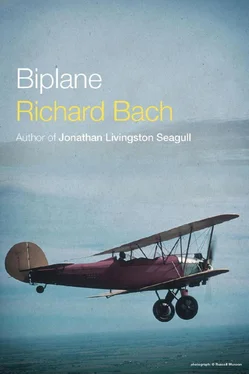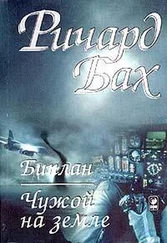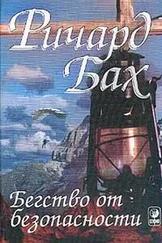Ричард Бах - Biplane
Здесь есть возможность читать онлайн «Ричард Бах - Biplane» весь текст электронной книги совершенно бесплатно (целиком полную версию без сокращений). В некоторых случаях можно слушать аудио, скачать через торрент в формате fb2 и присутствует краткое содержание. Город: New York, Год выпуска: 2012, ISBN: 2012, Издательство: Scribner, Жанр: Современная проза, на английском языке. Описание произведения, (предисловие) а так же отзывы посетителей доступны на портале библиотеки ЛибКат.
- Название:Biplane
- Автор:
- Издательство:Scribner
- Жанр:
- Год:2012
- Город:New York
- ISBN:978-1-4516-9744-5
- Рейтинг книги:3 / 5. Голосов: 1
-
Избранное:Добавить в избранное
- Отзывы:
-
Ваша оценка:
- 60
- 1
- 2
- 3
- 4
- 5
Biplane: краткое содержание, описание и аннотация
Предлагаем к чтению аннотацию, описание, краткое содержание или предисловие (зависит от того, что написал сам автор книги «Biplane»). Если вы не нашли необходимую информацию о книге — напишите в комментариях, мы постараемся отыскать её.
Biplane — читать онлайн бесплатно полную книгу (весь текст) целиком
Ниже представлен текст книги, разбитый по страницам. Система сохранения места последней прочитанной страницы, позволяет с удобством читать онлайн бесплатно книгу «Biplane», без необходимости каждый раз заново искать на чём Вы остановились. Поставьте закладку, и сможете в любой момент перейти на страницу, на которой закончили чтение.
Интервал:
Закладка:
Where there are no mountains, the pilot who sees the sky sees tall columns of warm blue air rising from heated spots on the ground. Pause for a moment in one of the columns, circling, and the airplane climbs in spite of itself, carried aloft on an elevator denied to those who believe only what they can surely see. The man who flies an airplane, then, to be the best possible pilot, must be a believer in the unseen.
One can get along in the air for a long time without having to believe, for usually the only consequence of unbelieving is a little more strain on the engine, a little more wear on the propeller. But if one flies long enough and far enough there will come the day when the difference between believing and not believing is the difference between winning or losing the whole game of problem solving.
Ahead, the sky goes brown in dust thrown by the wind. Dust that is Texas airborne, and one of the reasons behind the poignant names of Texas towns along my course: Gladewater, Clearwater, Sweetwater, Mineral Wells, Big Spring. A land centered about water, and where the water is scarce in the ground it is made plentiful in thought and in the names of cities.
I look up and see that the dust tops out way over my head. six thousand, maybe eight thousand feet. It would be useless to try to climb over it; the winds aloft would be even more on my nose and I would find the cars passing me. As it is, I can stay with the faster autos, just barely hold my own. That is a disconcerting feeling. There is a blue station wagon on the highway, humming along. It falls behind me a little when it has to climb a hill, it catches up and moves on ahead when the hill is in its favor. We have been together for minutes, so long that the passengers no longer bother to look out the window at the biplane flying not far away. The woman is reading a newspaper. I wonder if she knows that I’m looking over her shoulder. Of course not. You wouldn’t expect the pilot of an airplane to be aware of a car on the road, let alone of the people in the car.
The great wide flat land is all about, as far as I can see. There is room to put ten thousand biplanes into safe harbor. If the dust ahead gets so thick that I cannot see, it will be simple to turn and face the wind and land on any short stretch of clear soil. The stronger the wind, the shorter the space that the biplane will use for a safe landing. If the wind reaches fifty-five miles per hour, I’ll be able to land without even rolling the wheels. I could hover for an hour above my landing spot if I wished, and alight as gently as hummingbird upon jasmine branch. Still, the wind across the ground looks vicious, whipping long lashes of sand across the highway, making the dry trees bow and flutter to the force of its will.
We press ahead and I find myself wondering what comes next, from out of the murk, wondering whether the dust and the wind are all that are lying behind the portent of this ominous right drift. Somehow, there is that part of my thought that will be disappointed if there is not something more carnivorous than this waiting to battle.
The little towns of the brown plain slowly appear and slowly vanish behind as the wind shifts to blow more directly against the front of the biplane. Of course, I remind myself, the wind is not blowing on the airplane at all; the only wind that I feel is the wind that the airplane makes in its passage through the air and the blast of the propeller at work. We are like a goldfish in a deep river of air, swimming through the air and at the same time being carried along in its bosom. The classic illustration for the young in flight is, “If you are aloft in a balloon in a hurricane, you could light a candle in the open air and the flame wouldn’t even flicker. You’re moving just as fast as the wind, my friend, just like a goldfish in a river.”
I doubt that the candle/hurricane theory has ever been tested, but it all seems very logical and the goldfish must know that it is true. Still, it is difficult to accept this totally from the windy, gritty cockpit of an airplane over a long and lonely highway. Perhaps if I had a candle.
If I had a candle, I would still need the balloon. Settle down, pilot, and think about your flying. If the visibility gets very much worse, you know, you are going to have to land.
One solitary automobile on the highway passes me handily and I must draw my comfort from the fact that it is a new and luxurious machine. He could probably go one hundred miles per hour if he wanted to. In the tiny towns, the people have left the outdoors to the wind, and for the long minutes that the collection of houses drift beneath me they bring rippling reflections of the little villages along the roads of France. Deserted. Utterly deserted. Shutters closed, even in the center of the day. I never did discover where French villagers live, and left Europe as mystified as the other squadron pilots as to what the villages and the houses were for.
Vaguely through the sand comes a longer line of gasoline stations clinging to the highway. There is a city coming, and I look to the map on my knee. City city city, let’s see. City should be. Big Spring. A strange name, at this moment. North of the city there will be an airport and I should think about landing. No, I won’t land. There are two hours left in the tank, and I might fly out of the worst of the dust if I continue. Climb to cross the city, although I’m certain that no one hears the sound of five cylinders over the howl of the wind. Still, in a few things, conforming to regulation becomes a habit. Seven minutes to cross the city. I am certainly not moving very quickly. But if I stick to my task the wind should shift to become a right crosswind, drifting me to the left and portending good things to come.
A long wait. The parachute turns again to stone beneath me, incapable of being the cushion it was designed to be. A gradual Midland floats past below. An equally gradual Odessa, with tall buildings reaching up out of the depths of the ground and making me feel a little giddy to look down the lengths of them. Like many pilots, I would rather fly to fifty thousand feet in an airplane than look over the edge of a two-story building. A few people in the streets of Odessa, clothes flapping. And ahead; isn’t the sky growing a little brighter? I squint my eyes behind the goggles and maybe, just maybe, the sky is clearer to the west. And the expectant in me goes dead. This is all there will be. A brief dust storm, not even wild in its briefness, and the adversary is defeated. I circle in to land at Monahans and need less than one hundred feet of runway to roll to a stop. What a safe feeling. I can practically fly the airplane after it is on the ground, in the wind alone.
Once facing away from the wind, though, one must be very careful on the ground. An airplane is not built to move slowly along the ground, and unless it moves cautiously and uses its flight controls carefully, a strong wind can pick it up and casually, uncaringly, throw it on its back. It can take many insults from the sun and the weather as it stands on the ground, but one of the two things it cannot take is a very strong wind. The other, of course, is hail.
Easy easy now to the gas pump. Swing into the wind. Let the gritty engine die. It is a shame that there will be no more dragons to attack on this trip. Ahead can only be better weather and later even a tailwind once more. Those first pilots didn’t have such a very difficult time of it, after all. Only a little part of Texas to cross, part of New Mexico and Arizona, and we are home. Almost an uneventful flight. If I hurry, I can be home tomorrow night.
So thinking, I put the hose to the gas tank and watch the scarlet fuel pour into the blackness.

Интервал:
Закладка:
Похожие книги на «Biplane»
Представляем Вашему вниманию похожие книги на «Biplane» списком для выбора. Мы отобрали схожую по названию и смыслу литературу в надежде предоставить читателям больше вариантов отыскать новые, интересные, ещё непрочитанные произведения.
Обсуждение, отзывы о книге «Biplane» и просто собственные мнения читателей. Оставьте ваши комментарии, напишите, что Вы думаете о произведении, его смысле или главных героях. Укажите что конкретно понравилось, а что нет, и почему Вы так считаете.





